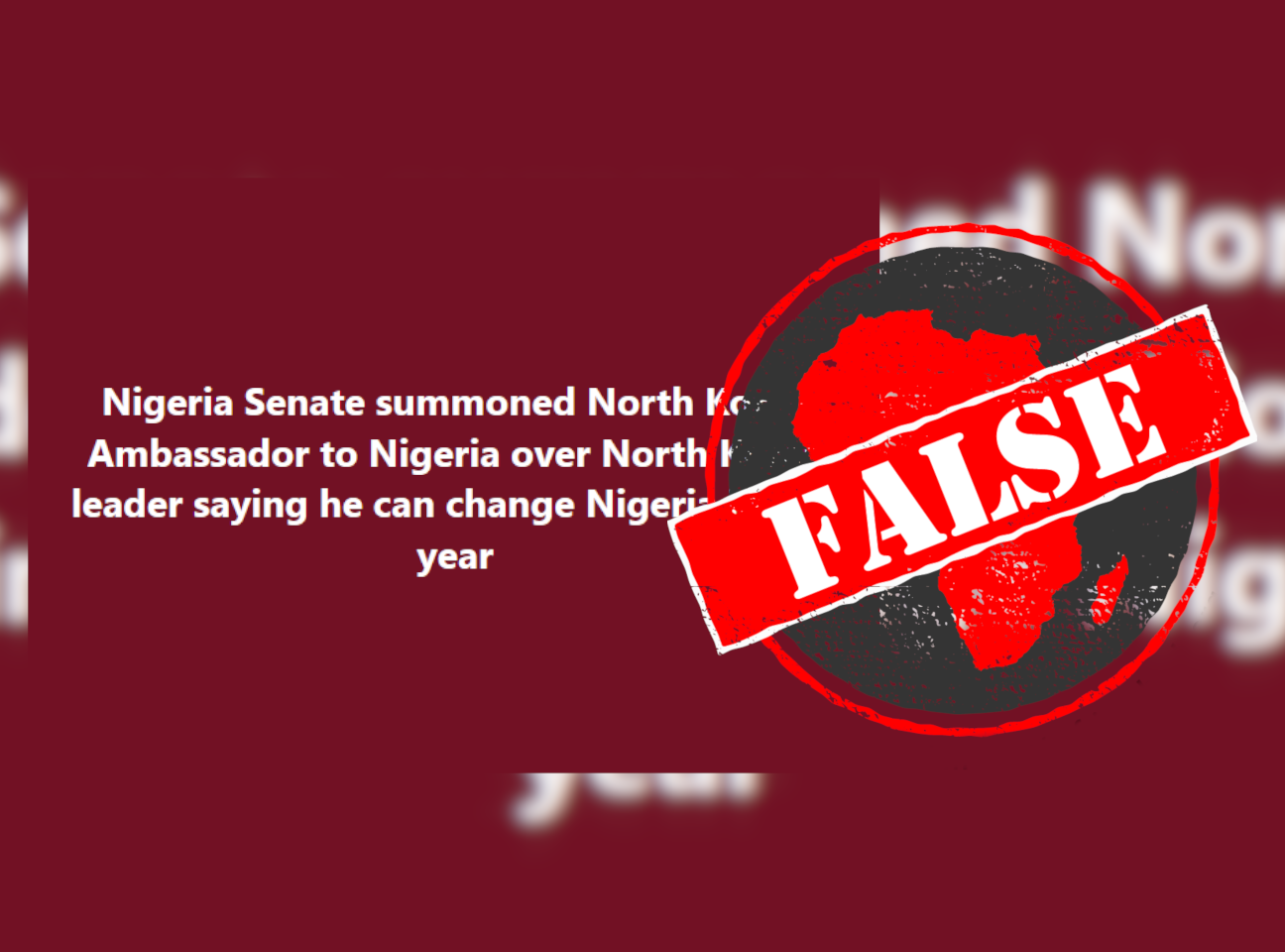IN SHORT: Nigeria’s foreign affairs ministry hosted the North Korean ambassador to Nigeria twice in 2023 to discuss bilateral issues. But claims that he was summoned by the senate over his leader’s remarks lack proof.
The removal of Nigeria’s controversial fuel subsidy in 2023 has led to a hike in fuel prices and a rising cost of living. According to Nigeria's National Bureau of Statistics, the country’s inflation rate hit 27.33% in October.
A post shared on Facebook in December claimed that the Nigerian senate had summoned the North Korean ambassador to Nigeria. The post claimed it was in response to a comment made by the East Asian country's leader.
“Nigeria Senate summoned North Korea Ambassador to Nigeria over North Korea leader saying he can change Nigeria in one year,” it reads.
Jon Tong Chol is the North Korean ambassador to Nigeria. Kim Jong Un has ruled the country since 2011, although none of the Facebook posts mention him by name.
The same claim appeared on public Facebook groups with thousands of members here, here, here, here, here, here, here and here.
Was Jon really summoned by the senate? We checked.

Lack of details is a red flag
When Nigeria’s ministry of foreign affairs hosted the North Korean ambassador in January 2023 and again in October, records and pictures of the visits were posted on the ministry’s website. But there is no record of a meeting taking place in December.
A look through Nigeria's national assembly website also returned no evidence of the meeting.
None of the Facebook posts gave details of when and where the senate summoned the ambassador, or on what occasion the North Korean leader made the statement. This lack of detail is often an indication that a claim is false.
If Kim had made such a statement, it would have been widely reported in local and international media. But we have found no reports of this from any credible media organisations. The claim is false.
Republish our content for free
For publishers: what to do if your post is rated false
A fact-checker has rated your Facebook or Instagram post as “false”, “altered”, “partly false” or “missing context”. This could have serious consequences. What do you do?
Click on our guide for the steps you should follow.
Publishers guideAfrica Check teams up with Facebook
Africa Check is a partner in Meta's third-party fact-checking programme to help stop the spread of false information on social media.
The content we rate as “false” will be downgraded on Facebook and Instagram. This means fewer people will see it.
You can also help identify false information on Facebook. This guide explains how.


Add new comment